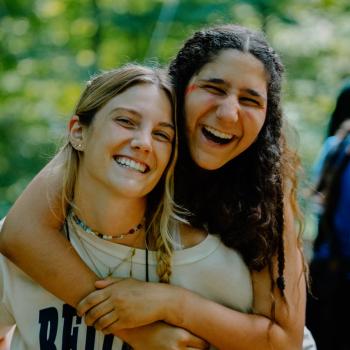We know that criminals, by their nature, violate the law. An individual with an intent to shoot someone else isn’t going to be deterred by those no-gun stickers at public buildings, stores, restaurants, etc. But my friend N. who posted a set of links on her facebook page, and called for her friends and colleagues to sign a petition against allowing concealed carry on public university campuses in her state, isn’t foolish enough to think otherwise.
Rather, this is her concern, if I read her right:
there are two alternate risks, even given that criminals with the intent to shoot will disregard “gun-free zone” laws:
in the case that a “gun-free zone” is implemented, you risk mass shootings being worse than otherwise because no armed civilians are able to step in before police arrive.
in the case that concealed-carry guns are permitted, you risk those permit-holders, ordinarily law-abiding as they may be, becoming perpetrators: either they misinterpret a situation that was not a threat at all, or escalate a threat that would otherwise have been resolved, or are hot-tempered and pull out their gun (which, again, we’re assuming they would have otherwise left at home due to their law-abidingness) during a quarrel. She believes that this is the far greater risk; hence, gun-free zones will mitigate this risk.
My friend then links to recent articles that she believes prove her point, that people who never would have had a gun with them, had it been against the law, are nonetheless capable of terrible violence in the heat of the moment: a shooting at Texas Southern University, for instance, and another at Winston-Salem University, in both cases not “mass shootings” with random victims but seemingly targeted victims. Would those shooters have been deterred by gun-free zones?
The trouble is this is all a mess of hypotheticals, and unknowns, and unknowables. How many shootings didn’t happen, or wouldn’t happen, because a would-be shooter kept his gun at home due to gun-free zone laws? How many shootings didn’t happen, or wouldn’t happen, because, at another time and place, a shooter was stopped by an armed civilian, or was deterred because he thought there might be armed civilians nearby?
Now, some of this could be assessed by some careful research studies: do areas designated “gun-free” become safer subsequent to that designation, relative to overall movements in crime statistics, and controlling for other variables. And maybe these studies have been done; I’ve not researched but I would expect that they’d be a part of the conversation if they were around.
But which you judge to be the bigger risk and the better solution probably says as much about your own beliefs and expectations as the objective reality. Thoughts?













